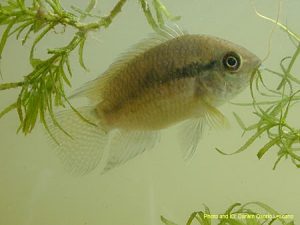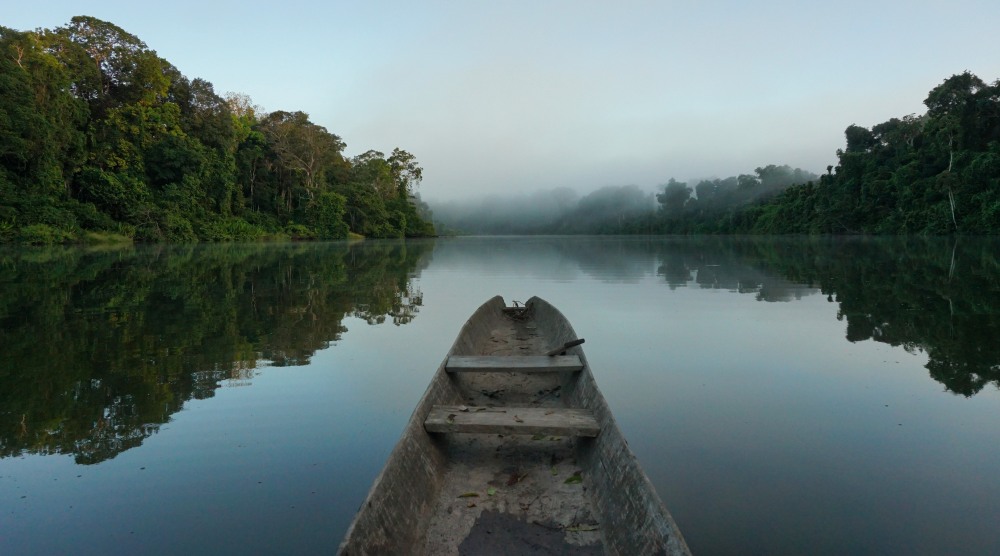By Ron Swaisgood
 Research at the CCBS explores fundamental and unanswered ecological questions of tropical ecology. Located on the shores of an oxbow lake that is part of a largely unaltered watershed connected by a series of rivers and streams, the potential of CCBS to advance scientific knowledge of tropical aquatic systems is substantial. Yet, in contrast to the long legacy of research on terrestrial systems at the station and in the surrounding Amazonian forests, few studies have addressed the aquatic ecosystem on which the diverse animal and plant life, as well as the local human populations, depend.
Research at the CCBS explores fundamental and unanswered ecological questions of tropical ecology. Located on the shores of an oxbow lake that is part of a largely unaltered watershed connected by a series of rivers and streams, the potential of CCBS to advance scientific knowledge of tropical aquatic systems is substantial. Yet, in contrast to the long legacy of research on terrestrial systems at the station and in the surrounding Amazonian forests, few studies have addressed the aquatic ecosystem on which the diverse animal and plant life, as well as the local human populations, depend.
Because the CCBS provides unrivalled access to complex biological systems undisturbed by human activities, there is great opportunity to pursue questions in aquatic ecology where evolutionary processes are still much the same as they were before humanity arrived on the scene. For the same reason, the CCBS can serve as a reference landscape providing comparative data to understand the impacts of human disturbance and environmental change.

This project will engage a diverse contingent of scientists from the United States, Peru, and elsewhere to work together under a collaborative umbrella to understand how this aquatic ecosystem functions and how it can be maintained to serve the interest of biodiversity, environmental quality, and human needs. The collaborative nature of this work will also serve to build relations between U.S. scientists and emerging and established Peruvian professionals and government representatives, and thus help build local capacity in science, help build the careers of U.S. scientists, support educational and training opportunities for U.S. and Peruvian citizens, and create positive ties between the two countries.
The paucity of data in this area ensures the novelty of new research initiatives, and the provision of sensors and instrumentation will facilitate multi-disciplinary research that integrates data collected on organisms and their abiotic environment, a fundamental objective in ecology. Because terrestrial and aquatic systems are coupled, aquatic research will inform the robust body of research conducted on land.

NSF support will allow cutting edge research performed at CCBS to grow into the 21st century and expand into aquatic ecosystems of the Peruvian Amazon, thus providing fundamental data for tropical ecosystems and exploring new directions that inform global change biology. This expansion may include new studies on hydroecology, flood plain dynamics, nutrient transport, ecological characterization of migratory fish and birds, drivers of aquatic ecosystem biodiversity, and emerging anthropogenic impacts on these systems and specific species such as the giant otter and the black caiman.
A successful expansion of an aquatic research program at the CCBS requires that several obstacles are addressed. To address these limitations, FSML funds will be used to purchase three research vessels, fully equipped with sensors and specialized aquatic monitoring equipment; construct a laboratory for storing and processing aquatic samples; and construct cabins for researcher accommodation. An expanded aquatic research at CCBS will have significant conservation application, guiding park management activities and informing conservation and restoration goals in Amazonian systems, and directly increasing knowledge for the management of conservation-dependent species such as the giant otter. Together, these activities will help maintain a healthy aquatic ecosystem to support human and natural communities.
